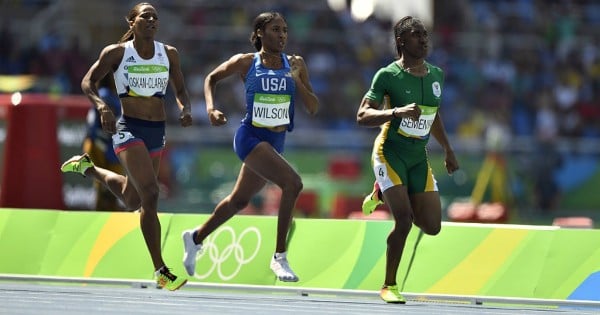Last night I had a massive argument with my partner about a 25-year-old female athlete, Caster Semenya.
The South African 800m runner has been thrust into the savage centre of a gender politics row playing out on the world stage. And she had made her way to our dinner table.
Semenya has done nothing wrong. Yet she is being treated worse than some doping athletes by people who believe the Olympian should not be allowed to compete with women due to certain intersex physiological traits normally associated with men.
She cruised to victory in the 800m first heat in Rio overnight, finishing in just under two minutes (1m59s), with viewers remarking she made it look like a warm-up.
There is no denying Semenya’s powerful physique. The sportswoman has a striking muscular frame. She also has testosterone levels three times higher than the usual level found in women.
But she is a woman. She was raised a woman. She identifies as a woman. And being intersex does not buy any athlete a one-way ticket to gold.






























































































